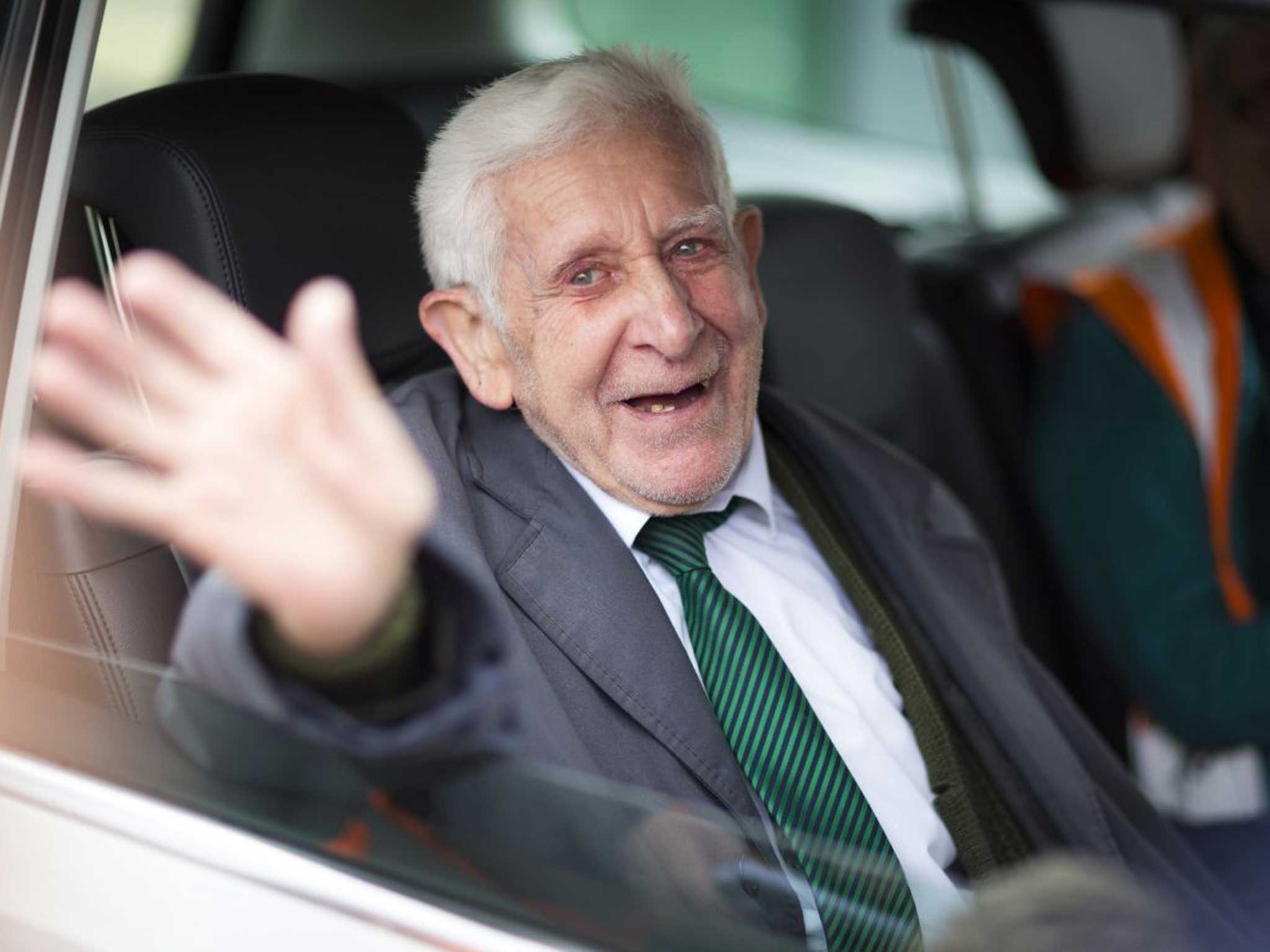The ‘D-Day rascal’ lets us indulge a modern pastime – patronising the old
It seems that anyone who has reached the age of 89 should be presumed to be so helpless that merely catching a train represents an act of derring-do

Ah, bless. A man of 89 has walked out of a care home, and then taken a train and a ferry, all by himself. He has attended a public event in France without becoming the slightest bit confused. After posing for photographs – some of them with young women, the saucy old boy – he has returned to England to face the press.
It is fair to say that Bernard Jordan had a very good D-Day. His walkabout knocked the 70th anniversary of the key moment in a great global conflict – one which changed the course of history and cost thousands of lives – off the front page of many British newspapers. The other veterans who attended the memorial, not to mention world leaders including the President of the United States, became back-stories to his trip across the Channel. It was Bernard’s incredible adventure that mattered.
Described in the press as “the great escape” – a crass, unblushing reference to the breakout from Stalag Luft III in 1944, which itself cost 50 lives – his journey was widely reported to have captured the heart of a nation. Here was a man who still represented the spirit of a great generation, we were told. He was our own “D-Day rascal”.
Congratulations to Bernard Jordan; commiserations to the half-baked culture which accepts this kind of trivia as worthy of serious attention. The moral seems to be that the great and moving events of the past are best conveyed to those who were not there by a gurgling, sentimental story from everyday domestic life.
I suspect that many of those who actually fought in the war will have been annoyed that such an important anniversary could be reduced to this level of triviality, and surprised that a connection could be made between their courage all those years ago and a small act of bloody-minded individualism in 2014.
An odd contemporary prejudice is revealed by the coverage the story received. It seems that anyone who has reached the age of 89 should be presumed, by the very nature of things, to be so helpless and infantilised that merely catching a train represents an act of derring-do.
Yet the extraordinary fuss surrounding the D-Day rascal is only partially explained by the new addiction to shared, public emotion.
Commemorating thousands of men who died fighting for their countries was apparently not quite moving enough to appeal to the modern sensibility. What was needed was a story to which everyone with aged parents or grandparents could relate.
There was something else at work: a sort of generational cringe. Now that most of those who fought in the war are dead, a myth-making process has imbued them with characteristics which we fear we no longer have. Back then, they were braver than subsequent generations could ever be, the myth goes. They were more stoical and public-spirited.
When a veteran does more than sit in an armchair, reminiscing mistily, the fiction kicks in. Only a member of the D-Day generation could have behaved as Bernard Jordan did, runs the story. They don’t make ‘em like that anymore.
The cringe is in evidence when public figures – Tony Benn, for example – reach their eighties and still contribute to the debates of the day. The fact that they can still develop ideas in their old heads, and articulate them without losing their thread, becomes a matter of wonder.
At the same time our culture has become anxious about growing old. The best, most-lethal way to criticise a politician who has reached some grand age – 60, say – is to be openly and cheerfully ageist.
“Doddery Old Vince Fails to Grasp Royal Mail Basics”, read one headline on a popular Westminster blog last month. Kenneth Clarke and, famously, Menzies Campbell have endured similar treatment in the recent past. Such is the inbuilt fear of ageing in our culture that few political figures can hope to survive once the “doddery” tag has been attached.
And for all the tearful affection showed towards Mr Jordan and other old soldiers, our society’s treatment of the aged is often disgraceful.
Those big words which were bandied about during the D-Day anniversary – gratitude, respect, admiration – tend to be forgotten when it comes to everyday care in hospital or in homes, or to government support which would take some of the anxiety and downright poverty out of old age.
The old are patronised in stories like that of Bernard Jordan. They become an excuse for the kind of easy emotion which is the common currency of social media and the press; a wrinkly version of the cat who rescues a toddler, or the brave, mortally ill kiddie in hospital.
That would matter less if there was genuine, practical concern beyond the tears and smiles.
At a certain stage in the life of old people, it is not a great escape that they need, but a dignified one.

Join our commenting forum
Join thought-provoking conversations, follow other Independent readers and see their replies